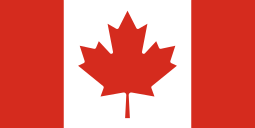Academic Qualifications
To be eligible to study in Finland from Nepal, students must meet certain academic criteria based on the level of study:
Undergraduate (UG) Programs:
- Completion of SEE + 10+2 or equivalent (Science, Management, or Humanities streams accepted)
- Minimum GPA: 2.5 or above (varies by university and program)
- Gap years accepted: Up to 2 years
Backlogs: Accepted in moderation (max 3–5, depending on university)
 Postgraduate (PG) Programs:
Postgraduate (PG) Programs:
- A recognized Bachelor’s degree in a relevant field
- Minimum GPA: 2.75 or above (some programs may require higher)
- Gap years accepted: Up to 5 years, with justification (work experience, training, etc.)
- Backlogs: Considered case-by-case; academic consistency is valued
Some Finnish universities accept applications with backlogs – speak to our expert counsellors at Goreto to find the right match for your profile.
English Language Proficiency
To study in Finland, Nepali students are required to demonstrate proficiency in the English language. The minimum score requirements for each language test vary depending on whether you are applying for Undergraduate (UG) or Postgraduate (PG) programs. Below is a comparison of the most commonly accepted English proficiency tests:
| Test | Undergraduate | Postgraduate |
| IELTS | Minimum 6.0–6.5 overall, with no section below 5.5 | Minimum 6.5–7.0 overall, with no section below 6.0 |
| TOEFL | Minimum 80 (iBT), with no section below 20 | Minimum 90 (iBT), with no section below 21 |
| PTE | Minimum 50–58 | Minimum 58–65 |
| Duolingo | Minimum 90 | Minimum 100 |
- IELTS and TOEFL are the most widely accepted in Finnish universities, especially for Postgraduate programs.
- PTE and Duolingo are also gaining popularity, especially for students who need more flexibility with test dates and locations.
Standardized Tests
Which Programs Require Standardized Tests?
In Finland, standardized test requirements vary by program and institution. Here’s a breakdown:
- Undergraduate Programs: Generally, standardized tests like the SAT are not required. Admission is primarily based on secondary school grades and language proficiency.
- Master’s Programs: Many universities require standardized tests such as the GMAT or GRE, especially for business-related programs.
Doctoral Programs: Typically, a strong academic record is sufficient, but some programs may require standardized test scores.
 Minimum Score Expectations for Top vs. Mid-Tier Universities
Minimum Score Expectations for Top vs. Mid-Tier Universities
| University Tier | GMAT Score | GRE Score |
| Top-tier | 600+ | 320+ |
| Mid-tier | 500–600 | 300–320 |
Note: These are general expectations and may vary by program.
Test Waivers During COVID-19
Due to the COVID-19 pandemic, some Finnish universities offered test waivers or alternative assessment methods. For example, the University of Lapland updated its guidelines, stating that there was no longer a need for specific instructions concerning COVID-19, indicating a return to standard admission processes.
Note: Always check the specific requirements of the program you’re interested in, as policies may have changed.
Financial Eligibility
Tuition Fees for Non-EU/EEA Students
| Program Level | Annual Tuition Range |
| Undergraduate (UG) | €8,000 – €20,000 |
| Postgraduate (PG) | €8,000 – €20,000 |
Note: Tuition fees vary by university and program. For instance, the University of Helsinki charges between €13,000 and €18,000 per year for Master’s programs .
 Estimated Living Costs
Estimated Living Costs
| Expense Category | Monthly Estimate (€) | Annual Estimate (€) |
| Accommodation | €450 – €800 | €5,400 – €9,600 |
| Food & Groceries | €250 – €350 | €3,000 – €4,200 |
| Transportation | €50 – €100 | €600 – €1,200 |
| Miscellaneous | €100 – €150 | €1,200 – €1,800 |
| Total | €850 – €1,400 | €10,200 – €16,800 |
Note: Living costs depend on the city and personal lifestyle. Helsinki tends to be more expensive, with monthly costs ranging from €1,000 to €1,300.
Total Annual Financial Requirement
| Expense | Estimated Amount (€) |
| Tuition Fees | €8,000 – €20,000 |
| Living Expenses | €10,200 – €16,800 |
| Total | €18,200 – €36,800 |
Note: These estimates are general; actual costs may vary based on program and personal circumstances.
Proof of Funds for Student Visa
To secure a Finnish student residence permit, you must demonstrate sufficient financial means:
- Living Expenses: At least €800 per month, totaling €9,600 for a one-year stay .
- Tuition Fees: If not already paid, you must show funds covering the tuition fee for the academic year.
Acceptable Proof:
- Recent bank statements showing the required amount.
- A letter from the bank confirming the availability of funds.
- Scholarship award letters, if applicable.
Note: Ensure that the funds are in your own bank account or that of a sponsor, with clear documentation.
Visa Requirements
Step-by-Step Guide to Obtaining a Finnish Student Residence Permit
For Nepali students planning to study in Finland, securing a student residence permit is essential. Here’s a structured overview of the application process:
Step 1: Obtain an Acceptance Letter
- Secure admission to a Finnish educational institution.
- Receive an official acceptance letter, which is a prerequisite for the residence permit application.
Step 2: Complete the Application
- Online Application: Fill out the residence permit application on Enter Finland.
- Paper Application: Alternatively, download and complete the application form from migri.fi.
Step 3: Book an Appointment
- Schedule an appointment at the Finnish Embassy in Kathmandu or a designated VFS Global Visa Application Centre.
- Prepare necessary documents for submission during your appointment.
Step 4: Prepare Required Documents
- Valid Passport: Ensure your passport is valid for at least three months beyond your intended stay.
- Acceptance Letter: Proof of admission from a Finnish institution.
- Financial Proof: Demonstrate sufficient funds (minimum €560 per month) to cover living expenses.
- Health Insurance: Obtain insurance covering medical expenses up to €40,000.
- Passport-sized Photograph: Recent photo meeting Finnish visa specifications.
Step 5: Attend the Appointment
- Submit your application and supporting documents in person.
- Provide biometric data, including fingerprints.
- Pay the application fee: €450 for online applications or €550 for paper applications.
Step 6: Await Decision
- Processing Time: Typically, decisions are made within 1–2 months.
- Notification: You will be informed via email or through the Enter Finland portal.
Common Reasons for Visa Rejection
- Insufficient Financial Means: Failure to demonstrate adequate funds for living expenses.
- Incomplete Documentation: Missing or incorrect application materials.
- Lack of Genuine Study Intent: Inability to convincingly articulate your academic goals.
- Poor Interview Performance: Inadequate responses during the visa interview process.
Note: Ensuring all documents are complete and accurately presented can significantly increase the likelihood of visa approval.
Documentation Checklist
To ensure a smooth application process for your Finnish student residence permit, prepare the following documents:
Academic Documents
- Transcripts and Certificates: Official academic transcripts and certificates from your SEE and +2 levels (or equivalent).
- Degree Certificates: For postgraduate applicants, include Bachelor’s degree certificates.
Test Scores
- English Proficiency Test Results: Valid scores from IELTS, TOEFL, PTE, or Duolingo English Test.
- Standardized Test Scores: If required by your program, include SAT, GRE, or GMAT scores.
Financial Proof
- Bank Statements: Recent bank statements showing sufficient funds to cover tuition fees and living expenses.
- Scholarship Letters: If applicable, provide official scholarship award letters.
- Income Clarification: Documentation detailing the source of your funds, such as employment letters or sponsor affidavits.
Additional Documents
- Statement of Purpose (SOP): A written statement outlining your academic goals and reasons for choosing Finland.
- Letters of Recommendation (LORs): Typically two letters from academic or professional references.
- Curriculum Vitae (CV): An updated CV highlighting your academic and professional background.
- Valid Passport: A passport valid for at least three months beyond your intended stay, with at least two blank pages.
- Passport-size Photographs: Two recent color photographs meeting Finnish visa specifications.
- Health Insurance: Proof of health insurance covering medical expenses up to €40,000.
- Acceptance Letter: Official letter of acceptance from a Finnish educational institution.
Scholarships & Financial Aid
Finland offers a variety of scholarships and financial aid options for international students, including those from Nepal. These are primarily categorized as:
- Merit-Based Scholarships: Awarded to students with outstanding academic achievements.
- Need-Based Scholarships: Granted to students who demonstrate financial need.
- University-Specific Scholarships: Each Finnish university has its own scholarship programs for international students.
Popular Scholarships for Nepali Students:
- University of Helsinki Scholarship: Offers full tuition fee waivers and a €5,000 relocation grant to exceptional students from outside the EU/EEA.
- University of Eastern Finland Scholarship: Provides tuition fee waivers for non-EU/EEA students based on academic merit.
- University of Turku Finland Scholarship: Covers tuition fees and includes a €5,000 grant for living expenses.
- Aalto University Scholarships: Offers merit-based scholarships covering 50%, 75%, or 100% of tuition fees.
- Tampere University Scholarships: Provides full and partial tuition fee waivers through its Early Bird and Finland Scholarships programs.
Goreto’s Assistance:
Goreto Educational Consultancy offers personalized counseling to help Nepali students identify suitable scholarship opportunities and navigate the application process for Finnish universities.
Application Deadlines & Intakes
Finland offers two primary intakes for international students:
Autumn Intake (August/September) – Main Intake
- Application Period: Early to mid-January 2025
- Application Deadline: Mid-January 2025
- Entrance Exams (if applicable): February to April 2025
- Admission Results: Early June 2025
- Semester Start: Late August or early September 2025
The autumn intake is the primary admission cycle, offering a wide range of programs across various fields.
Spring Intake (January) – Limited Programs
- Application Period: Late August to early September 2024
- Application Deadline: 11th September 2024
- Admission Results: By 21st November 2024
- Semester Start: January 2025
The spring intake offers a smaller selection of programs but provides an alternative for students who miss the autumn cycle.
Summer Programs (Short-Term Courses)
- Application Period: 1st February to 1st June 2025
- Program Dates: 11th to 22nd August 2025
Summer programs, such as those offered by the University of Eastern Finland, provide opportunities for short-term study experiences.
FAQ Section
Can I study in Finland without IELTS?
Yes, many Finnish universities allow international students to study without IELTS if they can demonstrate English proficiency through alternative means. For instance, if your previous education was conducted in English, or if you pass a university-conducted interview assessing your English skills, you might be exempted from providing IELTS scores.
What is the minimum GPA required to study in Finland from Nepal?
The minimum GPA requirements vary depending on the university and program:
- Bachelor’s Programs: Generally, a minimum GPA of 2.6 is required.
- Master’s Programs: Typically, a bachelor’s degree with at least second-division standing is necessary.
However, specific programs or universities might have different requirements, so it’s essential to check the exact criteria for your chosen course.
Can I apply with a study gap?
Yes, Finnish universities are generally flexible regarding study gaps. Many institutions accept students with gaps of up to 5–6 years, provided you can justify the gap with valid reasons such as work experience, further studies, or other constructive activities.
What are the chances of getting a student visa?
Finland boasts a high student visa approval rate. As of recent data, the visa acceptance rate is approximately 95%, indicating a favorable outcome for most applicants who meet the necessary requirements.
Have More Questions?
Feel free to ask your own question or schedule a consultation with our experts to get personalized guidance on studying in Finland.
Click here to ask your question!
Get Free Consultation






